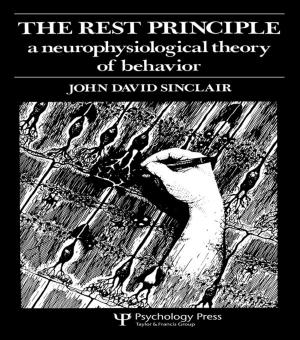Reconceptualising Feedback in Higher Education
Developing dialogue with students
Nonfiction, Reference & Language, Education & Teaching, Educational Theory, Adult & Continuing Education, Higher Education| Author: | ISBN: | 9781134067626 | |
| Publisher: | Taylor and Francis | Publication: | July 18, 2013 |
| Imprint: | Routledge | Language: | English |
| Author: | |
| ISBN: | 9781134067626 |
| Publisher: | Taylor and Francis |
| Publication: | July 18, 2013 |
| Imprint: | Routledge |
| Language: | English |
Feedback is a crucial element of teaching, learning and assessment. There is, however, substantial evidence that staff and students are dissatisfied with it, and there is growing impetus for change.
Student Surveys have indicated that feedback is one of the most problematic aspects of the student experience, and so particularly in need of further scrutiny. Current practices waste both student learning potential and staff resources. Up until now the ways of addressing these problems has been through relatively minor interventions based on the established model of feedback providing information, but the change that is required is more fundamental and far reaching.
Reconceptualising Feedback in Higher Education, coming from a think-tank composed of specialist expertise in assessment feedback, is a direct and more fundamental response to the impetus for change. Its purpose is to challenge established beliefs and practices through critical evaluation of evidence and discussion of the renewal of current feedback practices. In promoting a new conceptualisation and a repositioning of assessment feedback within an enhanced and more coherent paradigm of student learning, this book:
• analyses the current issues in feedback practice and their implications for student learning.
• identifies the key characteristics of effective feedback practices
• explores the changes needed to feedback practice and how they can be brought about
• illustrates through examples how processes to promote and sustain effective feedback practices can be embedded in modern mass higher education.
Provoking academics to think afresh about the way they conceptualise and utilise feedback, this book will help those with responsibility for strategic development of assessment at an institutional level, educational developers, course management teams, researchers, tutors and student representatives.
Feedback is a crucial element of teaching, learning and assessment. There is, however, substantial evidence that staff and students are dissatisfied with it, and there is growing impetus for change.
Student Surveys have indicated that feedback is one of the most problematic aspects of the student experience, and so particularly in need of further scrutiny. Current practices waste both student learning potential and staff resources. Up until now the ways of addressing these problems has been through relatively minor interventions based on the established model of feedback providing information, but the change that is required is more fundamental and far reaching.
Reconceptualising Feedback in Higher Education, coming from a think-tank composed of specialist expertise in assessment feedback, is a direct and more fundamental response to the impetus for change. Its purpose is to challenge established beliefs and practices through critical evaluation of evidence and discussion of the renewal of current feedback practices. In promoting a new conceptualisation and a repositioning of assessment feedback within an enhanced and more coherent paradigm of student learning, this book:
• analyses the current issues in feedback practice and their implications for student learning.
• identifies the key characteristics of effective feedback practices
• explores the changes needed to feedback practice and how they can be brought about
• illustrates through examples how processes to promote and sustain effective feedback practices can be embedded in modern mass higher education.
Provoking academics to think afresh about the way they conceptualise and utilise feedback, this book will help those with responsibility for strategic development of assessment at an institutional level, educational developers, course management teams, researchers, tutors and student representatives.















